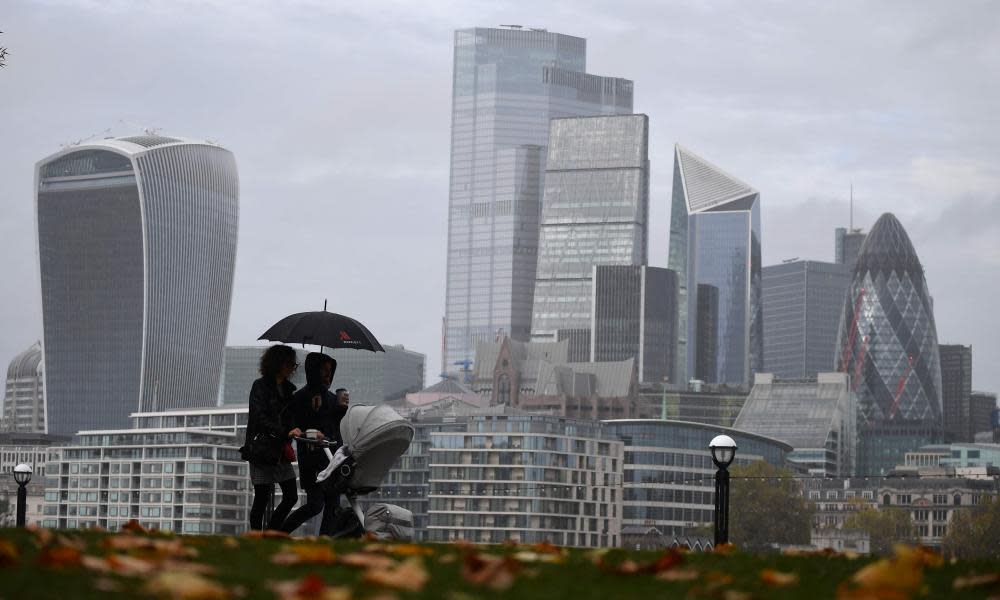What you can and can't do in the new England Covid lockdown

Boris Johnson has announced a four-week lockdown in England, following weeks of pressure from his own scientific advisers and opposition parties to introduce tougher measures to tackle coronavirus. The full details of the restrictions will be published early this wek before a vote in parliament on Wednesday.
This is what we know so far.
How long will England’s second lockdown last?
The national restrictions are due to come into effect on Thursday, after MPs vote on them, and remain in place at least until 2 December.
After that, national measures are set to be replaced with the current tiered system of restrictions linked to a region’s infection rate.
But it is possible that the national lockdown could be extended if the R value does not drop significantly, the cabinet office minister, Michael Gove, conceded on Sunday. Ministers hope the new measures will contain the spread of Covid-19, but so far the virus has outstripped the scientists “worst-case scenarios”.
What can I leave home for?
While the prime minister wanted to stress the new restrictions do not amount to a lockdown of the kind the country faced in March, they are still stringent.
People can leave home only for limited reasons, including:
For childcare or education, where it is not provided online.
To go to work unless it can be done from home.
Outdoor exercise either with household members or with one person from another household.
For all medical reasons and appointments.
To escape injury or harm, such as domestic abuse.
To provide care for vulnerable people or volunteer.
To shop for food and essentials.
To see people in your support bubble.
Children will still be able to move between homes if their parents are separated.
This list is not exhaustive and other permitted reasons for leaving home may be set out later this week when the legislation is published. People could face fines from police for leaving their home without a legally permitted excuse. So far, however, forces have been reluctant to enforce the regulations too aggressively.
Watch: What do the new lockdown rules mean for me?
Can different households mix indoors?
No, not unless they are part of an “exclusive” support bubble, which allows a single-person household to meet and socialise with another household.
Parents are allowed to form a childcare bubble with another household for the purposes of informal childcare, where the child is 13 or under.
Can different households mix outdoors?
People are allowed to meet one person from another household socially and for exercise in outdoor public spaces, which does not include private gardens.
Health minister Nadine Dorries has said that children under school age, as well as children and adults dependent on round the clock care, such as those with severe disabilities, will not count towards the limit of two people meeting outside. “This will mean that a parent can see a family member with their baby or young children,” Dorries tweeted, who added that official guidance will be updated to reflect this.
Can I attend funerals, weddings or religious services?
Up to 30 people will still be allowed to attend funerals, while stone settings and ash scatterings can continue with up to 15 guests.
Weddings and civil partnership ceremonies are not permitted except in “exceptional circumstances”. Places of worship must remain closed except for voluntary services, individual prayer and other exempt activities.
Can I travel abroad for a holiday?
Most outbound international travel will be banned.
There is no exemption for staying away from home for a holiday. This means people cannot travel internationally or within the UK, unless for work, education or other legally permitted exemptions.
Overnight stays away from primary residences will not be allowed, except for specific exceptions including for work.
Should some people be shielding?
The prime minister said that the clinically vulnerable or those aged over 60 should be especially careful and minimise contacts, but there would be no return to the shielding programme used in the first lockdown. Johnson said those in this category should work from home.
Which businesses will close?
Everything except essential shops and education settings, which include nurseries, schools and universities, will close.
Entertainment venues will also have to close. Pubs, restaurants and indoor and outdoor leisure facilities will have to close their doors once more.
However, takeaway and delivery services will still be allowed, while construction and manufacturing will stay open.
Parents will still be able to access registered childcare and other childcare activities where reasonably necessary to enable parents to work. Some youth services may be able to continue, such as one-to-one youth work, but most youth clubs will need to close their doors.
Public services, such as jobcentres, courts, and civil registration offices will remain open.
There is no exemption for grassroots organised team sports. Elite sports will be allowed to continue behind closed doors as currently, including Premier League football matches.
Watch: People in England face £10,000 fines for not self-isolating


